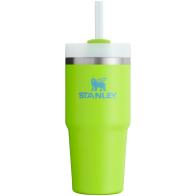How Long Is Canned Food Good for After the Expiration Date?
When to toss and when to keep!

Jack F/Getty Images
When was the last time you cleaned out your cupboard of canned goodies? I recently went into a friend’s pantry and found some cans dating back to 1988! Needless to say, those babies got tossed out. But what about cans that are past their “use by” dates by a few weeks, months or even years? Here are some guidelines for what to toss and what to keep.
Labels On Cans
Canned foods don’t have an expiration date. Rather, the two main labels you’ll find on cans include the “best-by” or “use-by” date. Here is what these terms mean:
- “Best-By” Date: This is the recommended time to use the product for the best physical and/or sensory quality. The date is recommended by the food manufacturer.
- “Use-By” Date: This term refers to the final days that the product will be at its peak freshness, flavor and texture. After this date, the quality of the food deteriorates, but it is still edible. This date is recommended by the food manufacturer.
According to the Can Manufacturer’s Institute, “canning is a high-heat process, so it preserves food and prevents the growth of any bad organisms. Canned food is forever safe, but it’s a quality issue when you have a 'best-by' or 'use-by' date.” You should use your canned foods within a couple of years for the best quality of the product.
How You Store Your Cans Matters
According to the Can Manufacturer’s Institute, “Unlike the high spoilage rate of fresh products, steel food cans are like a vault; protecting food from air and light, sealing in freshness and nutrition; and preventing spoilage.” However, you still need to do your part and make sure to examine the cans upon purchase and store it correctly.
According to the USDA’s Food Safety and Inspection Service (FSIS), you should not purchase cans that are bulging, leaking, rusted or deeply dented, and shoudl store cans in a cool, dark place. Ideally the temperature should be below 85 degrees Fahrenheit. Temperatures over 100 degrees Fahrenheit are potentially harmful to the canned goods. Do not store cans above or next to the stove, under the sink, in a damp garage or basement, or any area that is exposed to very high or very low temperatures. It’s also a good idea to check your pantry every so often (like every few weeks) to make sure your canned goods are in good shape (meaning, no leaks, bulges, rust or deep dents). According to the Can Manufacturer’s Institute, “there has not been a single reported incidence of foodborne illness from failure of the metal packaging in more than 40 years and the consumption of trillions of cans.”
There Are Benefits to Canned Food
There are so many benefits of using canned foods. The safety aspect has already been discussed, but canned foods also provide nutrition, convenience and help minimize food costs. According to the 2015 dietary guidelines for Americans, only 9% of Americans meet the recommended intake of vegetables, and 12% meet the recommended intake of fruit. Canned fruit and vegetables have the same nutritional content, and sometimes even better nutritional content, compared to their fresh or frozen counterparts. For example, canned tomatoes have higher amounts of lycopene compared to fresh tomatoes. Lycopene is a natural plant compound found in tomatoes that has been associated with reducing the risk of cancer. In addition, canned tomatoes have more B-vitamins compared to fresh tomatoes.
Canned foods also help lower food costs. Canned foods cost up to 20% less than their fresh counterparts and up to half the cost of frozen. Canned foods are also available year round, and are very convenient (I personally love canned beans!). Although you may try to buy all your food fresh, the reality is 15% to 20% of fresh produce is tossed and canned varieties are available all year round.
Lastly, did you know those cans are endlessly recyclable? Steel food cans have a recycling rate that is more than 2.5 times higher than other packaging options making it an environmentally-friendly choice.
Bottom Line
Canned food is a nutritious, sustainable and cost-friendly option. When stored properly, canned foods will be good for several years.
Related Content:
































